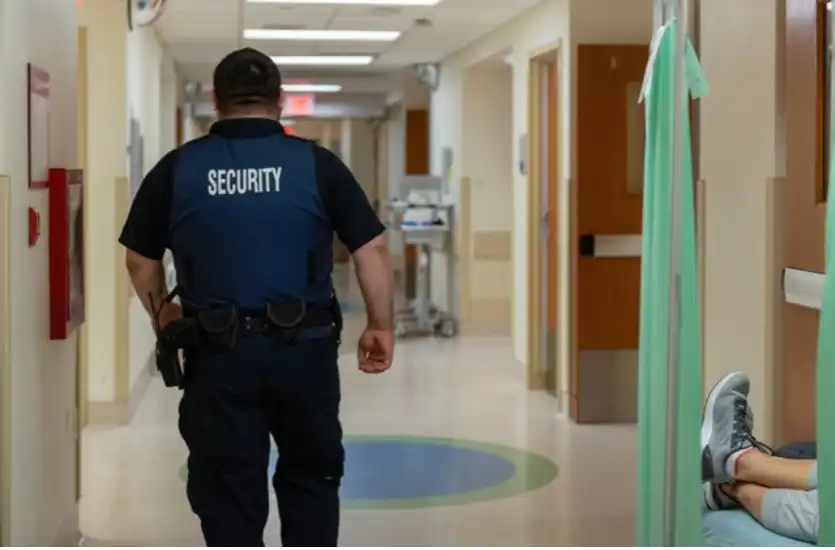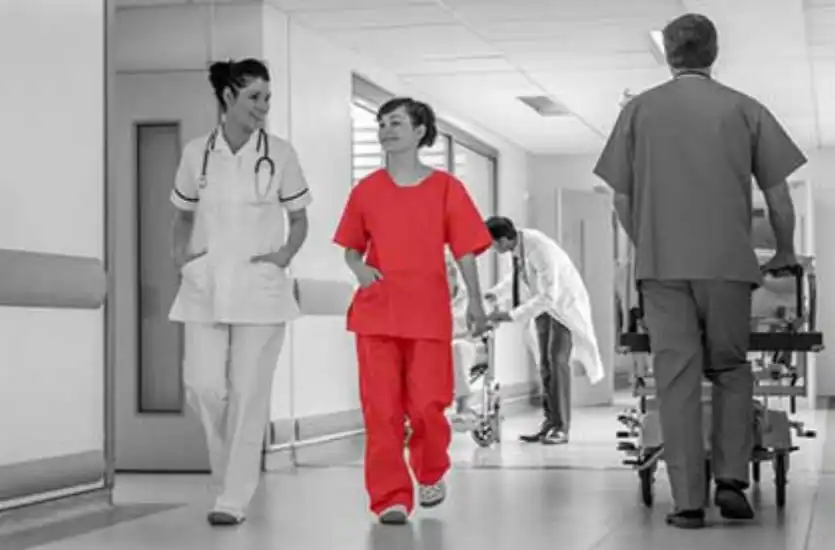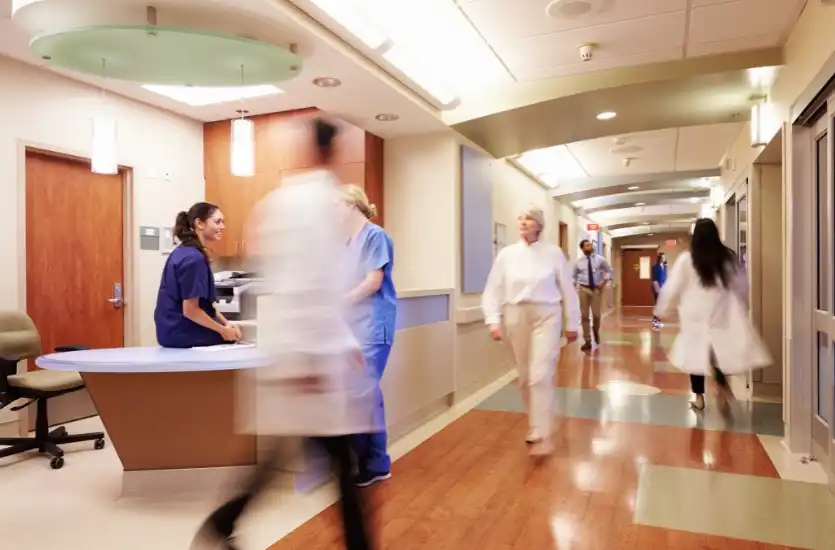When you go to the hospital, especially as a patient, the goal is for you to get better from whatever affliction you might be facing. And as the loved one of someone who is ill, you trust that the patient will be well-cared for and will be safe in the hands of the medical staff, and within the walls of the hospital itself.
This said, it is true that in hospitals, the safety and efficiency of care are top priorities. But unfortunately, reality shows that there’s a lot of room for improvement. Around 1 in 10 patients is harmed while receiving healthcare, leading to more than 3 million deaths each year due to unsafe practices.
What’s more troubling is that over half of this harm could be avoided, especially when it comes to medication errors. In primary and ambulatory settings, as many as 4 in 10 patients are harmed, yet up to 80% of these cases can be prevented. Alongside these issues, hospitals also face significant safety concerns, with 1.9 violent incidents occurring per 100 beds, often targeting staff members.
Addressing these challenges starts with improving communication within hospitals.
The Impact of Communication on Patient Safety
Before we jump into the critical-nature of effective communication in healthcare settings, let’s talk about safety and crime in these businesses. In 2021, a tragic incident unfolded at an Allina clinic in Buffalo, MN, where a 67-year-old man, dissatisfied with the healthcare he had received, opened fire inside the clinic. The attack left one person dead and four others wounded.
The suspect, Gregory Paul Ulrich, was arrested shortly after the shooting, but the damage was already done. This heartbreaking event, occurring in a small community of about 15,000 people, serves as a stark reminder of the violence that can erupt in healthcare settings.
Such incidents aren’t isolated. Crimes like murder, rape, robbery, and aggravated assault are more common in hospitals and clinics than many might realize. These violent acts often stem from dissatisfaction with care, mental health issues, or personal grievances. Sadly, these treats simply bring to light the need for robust safety measures within healthcare environments.
But safety isn’t just about preventing violence—it’s also about making sure patients receive the right care at the right time. Effective communication is the backbone of patient safety. Poor communication can lead to serious consequences, such as medication errors, misdiagnoses, and delays in treatment. For example, a nurse failing to relay critical information about a patient’s allergy to a doctor could result in administering the wrong medication, causing harm that could have been avoided.
Similarly, a breakdown in communication between departments might delay a necessary procedure, putting a patient’s life at risk. Strengthening hospital communication systems is important to prevent such errors and protect patients and staff.
Improving Communication with Two-Way Radios
So, how can two-way radios help? Before we get into that, let’s first talk about EMCI Wireless. We are the leading Motorola Solutions Channel Partner serving Central and South Florida. With over 48 years of experience, we have become a trusted provider of wireless communication solutions.
Our long-standing partnership with Motorola Solutions makes us the ideal choice for businesses and organizations looking to deploy reliable wireless networks. We offer a full range of services, from system design and integration to ongoing maintenance and support, making sure your radio network stays up and running.
Established in 1975 and headquartered in Sebring, Florida, EMCI Wireless is a locally owned business that has grown into a significant Motorola Solutions Channel Partner in Florida. Our main focus is on supporting mission-critical communications in government and enterprise sectors. We provide the latest commercial series MOTOTRBO digital mobile radios and the industry-leading APX P25 public safety radios. We are also committed to Motorola’s efforts to solve safety challenges in healthcare and other industries.

Introduction to Two-Way Radios in Healthcare
Using two-way radios in hospitals offers significant benefits. They provide real-time communication, which is necessary for responding quickly in emergencies. Motorola two-way radio solutions are designed to meet the unique needs of healthcare settings, offering clear communication even in noisy environments. As a Motorola channel partner, we can provide tailored solutions that fit the specific needs of your hospital.
How Two-Way Radios Improve Patient Safety
Two-way radios help hospital staff coordinate more effectively, allowing for quick communication between departments. This fast exchange of information can make all the difference in critical situations, helping to prevent errors and improve patient care. Additionally, two-way radio accessories, like earpieces and microphones, make it easier for staff to communicate without disrupting patient care, further improving the overall safety and efficiency of the hospital environment.
Addressing Hospital Violence with Improved Communication
It’s important to note here that the use of two-way radios may not necessarily prevent violence in hospitals; they can play a key role in de-escalating situations and reducing the risk of serious injuries. Hospital safety begins with building the right infrastructure and communication systems to lower the chances of these events happening in the first place. For example, MOTOTRBO Two-way radios can allow for a quicker employee response time in emergency situations by instantly connecting security teams and hospital staff.
Steps to a Safer Hospital Environment
Here are some ways to create a safer hospital environment that helps reduce the likelihood of violence:
- Training: Participate in training programs focused on violence awareness and prevention. Stay informed about hospital safety policies, procedures, and crisis plans to be prepared for any situation.
- Report Incidents: If you witness violence or experience an incident, speak up. Reporting these events is vital to addressing the issue. Press charges if you are assaulted to hold perpetrators accountable.
- Support Coworkers: Offer support to coworkers who experience violence. A strong support system can make a significant difference in recovery and morale.
- Work Together: Collaborate as a team to find solutions to prevent and manage violence. Teamwork is key in creating a safe environment.
- Create a Plan: Develop a workplace violence prevention plan that includes management’s commitment, employee participation, and safety training. This plan should be clear and accessible to all staff members.
- Analyze the Workplace: Regularly assess the workplace to identify potential risks and create a supportive environment where staff feel safe and valued.
- Communicate and Empathize: Offer training on effective communication and empathy. These skills can help de-escalate tense situations and improve interactions between staff and patients.
- Train Employees: Provide training to help employees recognize the warning signs of potential violence. Early recognition is non-negotiable to prevent incidents before they escalate.
Two-way radios fit into this plan by allowing staff to communicate quickly and clearly during any situation. In a violent incident, immediate communication can summon security or alert other staff members to take protective actions. This technology also supports day-to-day safety by keeping everyone connected.

Implementing Two-Way Radios in Your Hospital
So, how do you implement two-way radios into your hospital environment? The truth is that while we can hope that simply passing out two-way radios to key staff members would be enough to get everyone on board, that’s simply not the case. There are some steps to take to make sure that two-way radios and related two-way radio accessories will work with the existing building infrastructure and employees will know how and when to use this technology without fail.
Here is what needs to happen.
- Assess the Building’s Infrastructure: Begin by evaluating the hospital’s layout, including any potential dead zones where radio signals might not reach. This step is vital to ensuring that communication is reliable throughout the entire facility.
- Choose the Right Equipment: Select two-way radios and accessories that fit the specific needs of your hospital or healthcare setting, such as nursing homes, clinics, or dental practices. Consider factors like range, battery life, and ease of use.
- Train Employees: Provide comprehensive training on how to use two-way radios. This includes when to use them, how to communicate clearly, and what to do in different scenarios, such as emergencies or routine operations.
- Test the System: Before fully rolling out the radios, test them in real-world conditions to identify and resolve any issues. Make adjustments as needed to optimize performance.
- Develop Protocols: Establish clear protocols for radio use, including who should carry them, how to report incidents, and how to escalate situations.
- Provide Ongoing Support: Offer continuous support and refresher training to make sure staff remain comfortable and proficient with the technology.
EMCI Wireless Can Help Design the Right Two-Way Radio Solutions For Your Hospital and Healthcare Setting
We know that those who work in healthcare settings likely never anticipated the type of violent crimes or safety issues that can actually occur. After all, your goal is to take care of patients, not deal with violence that can impede your ability to do so.
That’s where EMCI Wireless can help. We can work with your security and information technology (IT) teams to help you create a system designed to improve communication and keep people on hospital grounds as safe as possible.
Ready to get started? Contact EMCI Wireless today for a free consultation.

